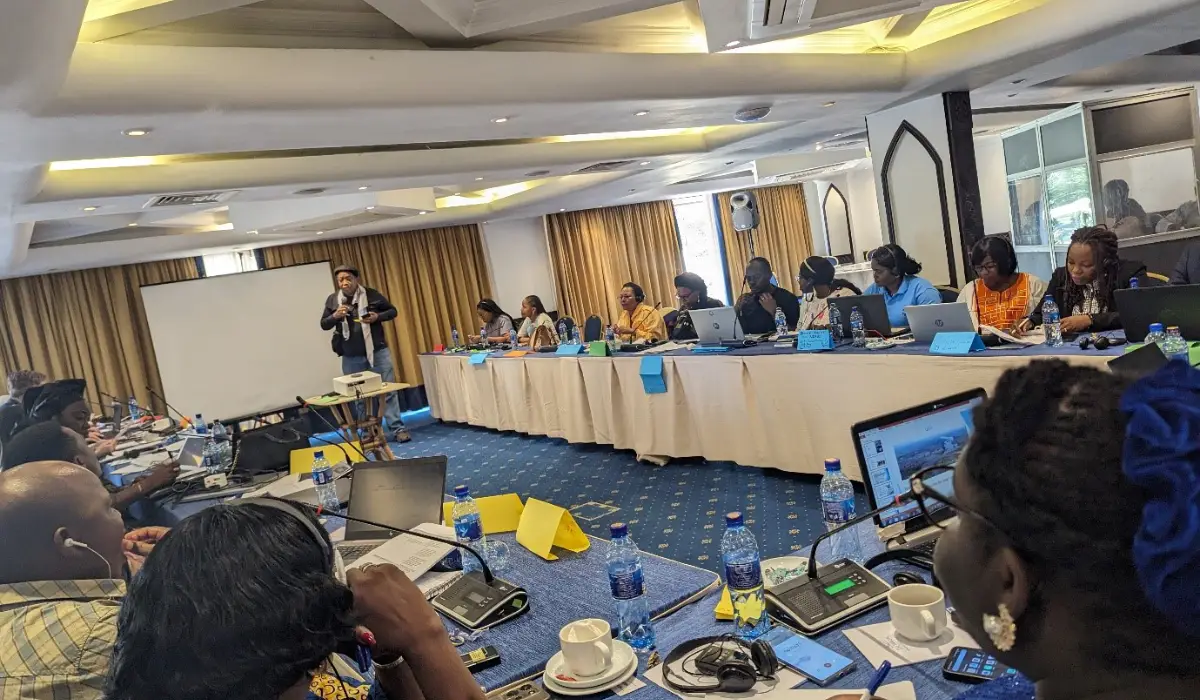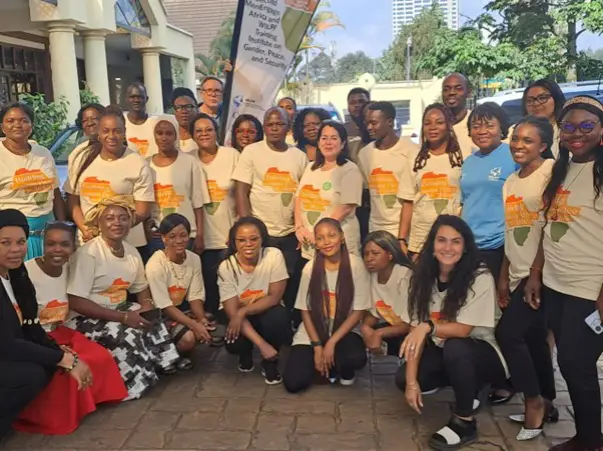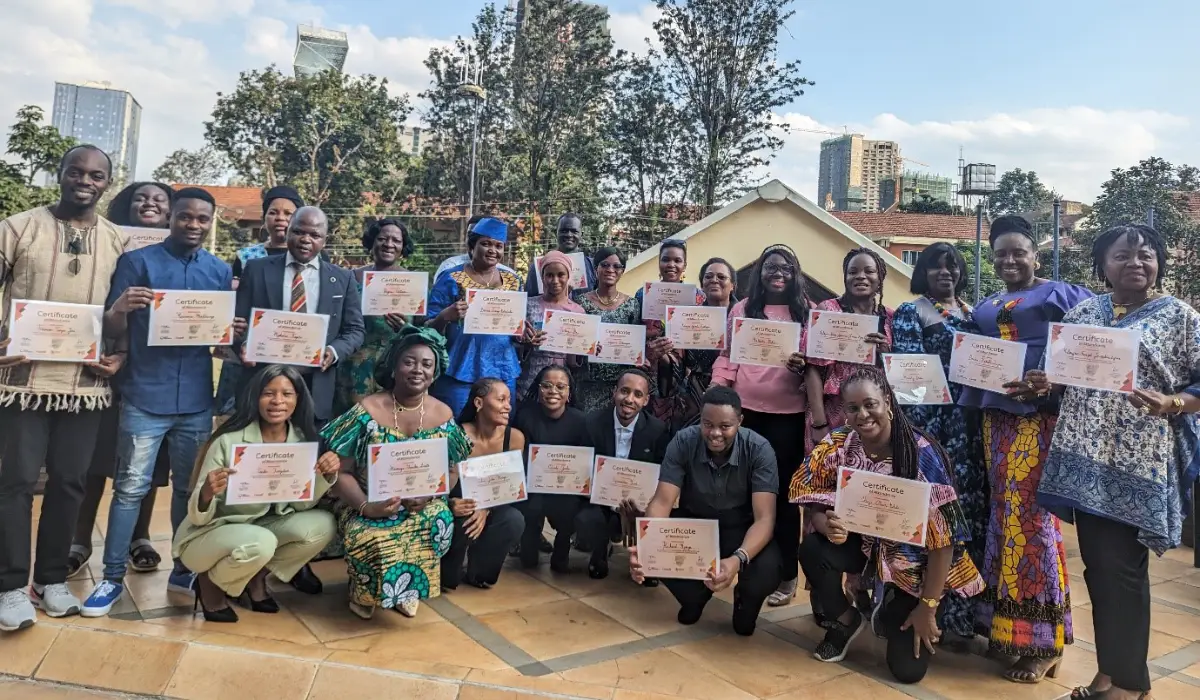Twenty-five fellows from West, Central, East and Southern Africa are now equipped with knowledge on International Instruments and Frameworks on Human Rights, the Women Peace and Security agenda, skills to identify and deconstruct the structural drivers of conflict as well as how to engage in joint advocacy for the effective implementation of the United Nations Security Council Resolution 1325 and 2250. They also understand the African Union Silencing the Guns campaign and skills for working with men and boys for feminist peace. This is an aftermath of MenEngage Africa Training Institute, dubbed #MATI2024, on Gender, Peace and Security.
This fellowship co-organized and facilitated by Women International League for Peace and Freedom and Sonke Gender Justice utilized the hybrid model of training, consisting in three weeks online self-paced learning from 1st – 31st July in partnership with Gender Equality Studies and Training Program, Gro Gest of the University of Iceland and one week in-person training from 12-16th August in Nairobi, Kenya. The online session focused on grounding participants on the concepts, testing their understanding of the course as well as helping them reflect on knowledge gained through weekly assignments.
The in-person session was a platform for detailed and though-provoking presentations, group work, plenary discussions and sharing of country experiences centered around the gendered dimension of war, implementation of WPS , masculinities and peace processes.
Presentations were on major concepts and themes like the structural drivers of conflict viz toxic masculinities , violence against women and girls, negative and harmful cultural practices , women and girls used as weapon of wars, framework on Gender, Peace and Security like the Maputo Protocol , The AU Silencing The Guns Campaigns , The UNSCR 1325 and 2250 which emphasizes meaningful inclusion of women and youths in peace processes respectively, as well as the Kinshasa Declaration and the call to action of African Union leaders to promote positive masculinity as a way to end violence against women and girls.

The Training was conducted through group work, plenary sessions and sharing of good practices.
Group Work
This set the pace for participants to coordinate themselves, put ideas together and deliberated on thematic like the structural drivers of conflict. They also discussed strategies for mainstreaming knowledge gained in their respective communities and action plans for their various interventions like feedback sessions, sensitization campaigns and local partnerships with traditional and religious leaders as a head of households.
Plenary Sessions and Discourses
Some of the subjects discussed during the plenary included -The MenEngage Alliance: an accountable and feminist approach to engaging men for gender equality and peace in Africa and Programmatic interventions to mobilise men for gender equality and peace in Africa: WILPF Cameroon working to end violence extremism within the context of armed conflict, MenEngage South Sudan working with community actors in providing mental health support to persons who have experienced repeated forms of traumatic events in fragile settings, MenEngage Nigeria working on community sensitisation on gender equality and prevention of violence against women and girls as a weapons of armed conflicts.
The discourse on working with men as boys as allies in the struggle for gender equality and feminist peace in Africa was delivered by- Bafana Khumalo, Co-Ed Sonke Gender Justice and member of the board of MenEngage Alliance who outline the context of MenEngage in Africa and how working with men and boys is pivotal for attaining gender equality and feminist peace.
“The conception of masculinities remains strongly tied to war and aggression, and this is how communities normalize negative masculinities. The feminist agenda for peace should aim to dismantle harmful norms and should have a transformative agenda which informs all socioeconomic and political inequalities. Accountability is also fundamental for engaging men and boys for gender justice. As MenEngage Africa, accountability must be practiced individually and collectively to address power and privilege and the importance of representation of women which can never be over emphasized.” – Bafana Khumalo, Co-Ed Sonke Gender Justice and member of the board of MenEngage Alliance.
- The collective action of women and men in the Kenyan Protest against the rising cost of living, young unemployment and to reject the 2024 finance bill. As a result of the collective action, this bill was withdrawn following the suppression of the protest, loss of lives and other casualties. Women participated in these protests as leaders, mobilized others and were also inspired by the Mau Mua movement and other forms of activism that have brought about change in the world.
- Structural drivers of conflict like alcoholism, customs and traditions, harmful practices, Gender-based violence, underrepresentation of women in some sectors which intersect with other factors to escalate conflict and destabilize communities.
Sharing of Country Experiences
The unique experiences of fellows intrigued conversations for strengthening partnerships, creating communities of practice, proposing solutions to challenges and superficial practices like tokenism and youth exploitation, peer learning, best practices and networking.

Trained fellows are currently working on communication products highlighting their MATI experience and are expected to contribute to enhancing WPS processes. Some of them had this to say towards the end of the in-person training
“The online course was friendly, and I was able to manoeuvre. It was interesting and I had time to reflect on the self-paced course. Now, the in-person session is very good because it’s gives more technical content coupled with examples from other contexts. It has also ignited my mind and given me inspiration on coming up with similar activities in my country.” Enele Zulu, MenEngage South Africa
According to Gat’Panuy Wuay from MenEngage South Sudan, this training gives more grounding for his work. ‘’In South Sudan, we are at a difficult moment. I relate with a lot of things that have been shared, but also ensure to intentionally integrate it into the work we are doing. Also, it will help me add more content on our ongoing trauma healing program for young people most of whom have lost their loved ones. This training also helps me to mainstream activities from a gender sensitive approach and understand how masculinities, social and structural drivers are contributing to conflict.”
“At first, it was difficult for me to relate all the concepts to my work. Now, I am enjoying the onsite session so far because the different causes of conflict have been shared,” Ncamiso Makhanya, MenEngage Swaziland.
“I was able to understand the concepts based on other examples from other countries. I intend to restitute with my country network and so we can work more on gender, peace and security,” Uriele Tomety, MenEngage Togo.


